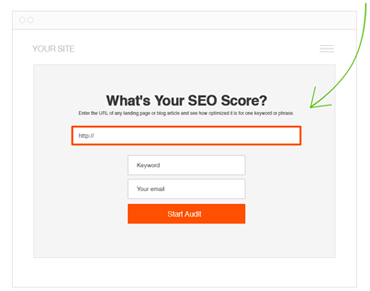Staying Ahead of the Curve: The Latest SEO Trends and Predictions

The world of Search Engine Optimization (SEO) is constantly evolving, with new trends and best practices emerging regularly. It’s crucial to stay informed about the latest developments to stay ahead of the curve and ensure your website remains competitive.
This blog post will explore key SEO trends and predictions for the coming year.
1. Artificial Intelligence (AI) and Machine Learning
AI and machine learning are playing an increasingly important role in SEO. Search engines like Google leverage these technologies to understand user intent better, improve search results, and provide more relevant information. As AI advances, we can expect to see even more sophisticated search algorithms and new opportunities for SEO professionals.
2. Core Web Vitals
Google has significantly emphasized Core Web Vitals, a set of metrics that measure the user experience on a web page. Factors such as page load time, interactivity, and visual stability are now crucial for ranking well in search results. Ensuring your website meets these standards is essential for providing a positive user experience and improving your SEO.
3. Voice Search Optimization
With the rise of voice-activated devices like smartphones and smart speakers, voice search is becoming increasingly popular. Optimizing your content for voice search involves using natural language, answering questions, and providing concise information. By focusing on voice search optimization, you can tap into a growing segment of searchers.
4. Local SEO
Local SEO continues to be a vital component of many businesses’ digital marketing strategies. As more people search for local businesses using their mobile devices, optimizing for local search is essential. This includes claiming your Google My Business listing, managing online reviews, and targeting local keywords.
5. E-commerce SEO
E-commerce businesses face unique challenges when it comes to SEO. Optimizing product pages, category pages, and your website’s overall structure is crucial for driving organic traffic and increasing sales. Consider factors like product descriptions, image optimization, and internal linking.
6. Content Marketing
High-quality content remains a cornerstone of effective SEO. Creating valuable, informative, and engaging content that meets the needs of your target audience is essential for attracting organic traffic and building authority. Focus on creating shareable, linkable, and relevant content to your audience’s interests.
7. Backlink Building
While the importance of backlinks has evolved, they still play a significant role in SEO. Focus on building high-quality, relevant backlinks from authoritative websites. Building relationships with other websites in your industry can be a valuable strategy for acquiring backlinks.
8. Mobile-First Indexing
Google has shifted to a mobile-first indexing approach, prioritizing mobile-friendly websites in its search results. Ensure your website is optimized for mobile devices to provide a seamless user experience and improve rankings.
9. User Experience (UX)
A positive user experience is essential for both SEO and overall website success. Focus on creating a website that is easy to navigate, visually appealing, and loads quickly. A good user experience can increase engagement, time on-site, and conversions.
10. Data-Driven SEO
Leverage data and analytics to track your SEO performance and make informed decisions. Use tools like Google Analytics and Google Search Console to monitor your website’s traffic, rankings, and user behavior. By analyzing data, you can identify areas for improvement and optimize your SEO strategy accordingly.
By staying informed about these SEO trends and predictions, you can position your website for success in the ever-evolving digital landscape. Remember, SEO is an ongoing process, so it’s essential to continuously adapt your strategies and stay up-to-date with the latest best practices.
 September 2, 2024
September 2, 2024


